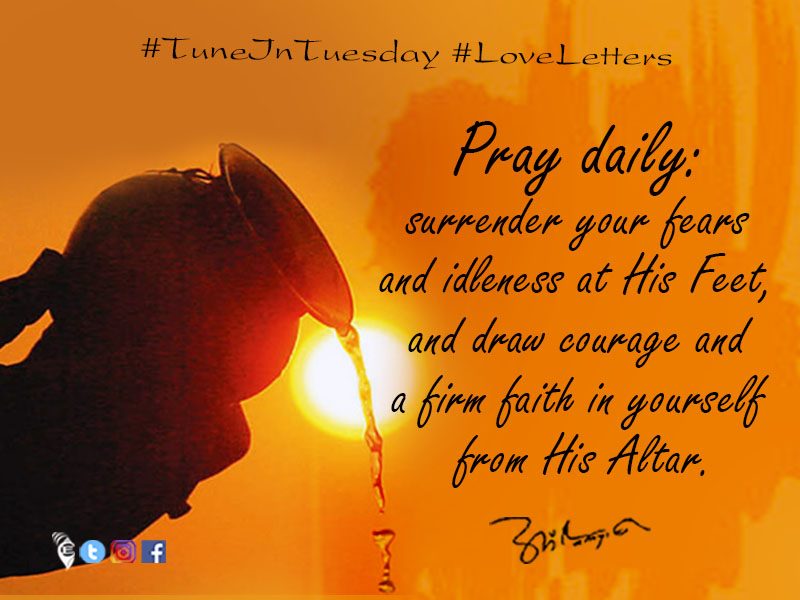The Kathopanishad: A Wondrous Epic of the Spirit : 2. Swami Krishnananda
=========================================================================
---------------------------------------------------------------------------------------------------------------------------
06/09/2019.
(Spoken on June 19, 1972)
2.
We are told at the outset that Nachiketas was obliged to confront a mysterious, terrific power whom we mythologically know in India as Lord Yama, the Lord of Death. He was forced to encounter this Lord, and in this story of Nachiketas’ approach to Yama, we are told in the Upanishad that when the lad approached the gateways of the palace of Yama, the Lord was absent. He was not to be seen for three days. Three days and three nights did Nachiketas pass, without even water, waiting for the coming of the Master whom he had to meet, and from whom he had to receive boons of various kinds.
These three days mentioned in the Upanishad are also of great mystical significance. Nachiketas stands for the human spirit, as Arjuna in the Bhagavadgita stands for mankind in its completeness. The human spirit is in search of the Supreme Spirit, and in this quest there is a very peculiar encounter which seems to be unavoidable. The Lord of Death is to be faced before we come face to face with the Spirit Supreme. In this quest of the spirit it is possible to overestimate oneself and underestimate the powers of nature. It is the powers of nature that go by the name of death. They appear to be ferocious powers that work in dissonance with this structure of our personality, so that we cannot face them without a sense of dread. They can simply topple the sun and break the stars. The natural forces have to be released, and man’s spirit seems to be a small spark that is ready to be extinguished before the mighty tempest that nature can blow over it.
Death is the greatest fear that we have before us. Among all the dreads in nature, death is the greatest. The highest punishment is hanging. We cannot conceive of anything worse than that. And the fear that is attended with the concept of death is also associated with the notion of self-extinction. The fear of death is the same as the fear of self-extinction, the abolition of oneself, the complete negation of one’s personality. The cessation of one’s being is what is implied in death.
To be continued ...
========================================================================
---------------------------------------------------------------------------------------------------------------------------
06/09/2019.
(Spoken on June 19, 1972)
2.
We are told at the outset that Nachiketas was obliged to confront a mysterious, terrific power whom we mythologically know in India as Lord Yama, the Lord of Death. He was forced to encounter this Lord, and in this story of Nachiketas’ approach to Yama, we are told in the Upanishad that when the lad approached the gateways of the palace of Yama, the Lord was absent. He was not to be seen for three days. Three days and three nights did Nachiketas pass, without even water, waiting for the coming of the Master whom he had to meet, and from whom he had to receive boons of various kinds.
These three days mentioned in the Upanishad are also of great mystical significance. Nachiketas stands for the human spirit, as Arjuna in the Bhagavadgita stands for mankind in its completeness. The human spirit is in search of the Supreme Spirit, and in this quest there is a very peculiar encounter which seems to be unavoidable. The Lord of Death is to be faced before we come face to face with the Spirit Supreme. In this quest of the spirit it is possible to overestimate oneself and underestimate the powers of nature. It is the powers of nature that go by the name of death. They appear to be ferocious powers that work in dissonance with this structure of our personality, so that we cannot face them without a sense of dread. They can simply topple the sun and break the stars. The natural forces have to be released, and man’s spirit seems to be a small spark that is ready to be extinguished before the mighty tempest that nature can blow over it.
Death is the greatest fear that we have before us. Among all the dreads in nature, death is the greatest. The highest punishment is hanging. We cannot conceive of anything worse than that. And the fear that is attended with the concept of death is also associated with the notion of self-extinction. The fear of death is the same as the fear of self-extinction, the abolition of oneself, the complete negation of one’s personality. The cessation of one’s being is what is implied in death.
To be continued ...



.jpg)

Comments
Post a Comment